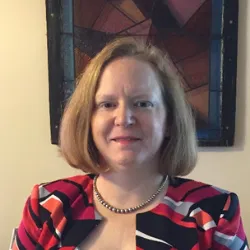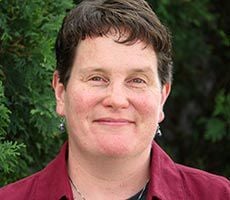
The ReImagine Appalachia Faith in Action Team came together with our collaborators to explore the transformative potential of energy efficiency, the use of less energy to perform the same task or produce the same result. From Fridge to Furnace: Energy Efficiency for Your Buildings and Community, shed light on new resources and strategies available for Faith Communities as they transition to more ecologically and economically sustainable congregations.
Our panel of guest speakers for this webinar included:

Kathleen Hrabovsky
Pennsylvania Interfaith Power and Light

Amani Reid
Formerly ReImagine Appalachia/ Now Pennsylvania Department of Environmental Protection, Office of Environmental Justice

Colby May
Energy for Mission

Kim Anderson
Evangelical Environmental Network

Jamal Lewis
Rewiring America

Rev. Robin Blakeman
Energy Efficient West Virginia and West Virginia Interfaith Power and Light
Did you know the 400,000 houses of worship in the United States tithes around $50 billion? $10 billion is spent on utilities, making it the second largest expense after salaries. Approximately 30% of the energy is wasted. Mitigating wasted energy can help congregations save money and resources, the financial savings of which can be redirected toward mission work. Conducting an energy audit and installing energy-efficient appliances are important steps to take when starting to reduce energy waste Creating a strategic management and maintenance plan is crucial for long-term energy savings.
To learn more about intentionally managed buildings and energy efficiency, you can listen to Energy for Mission’s podcasts and webinars under the “Resources” tab. If you would like to access an interactive Presbytery map of Presbytery offices located in WV, KY, VA, and TN, click here.



For Congregations and Groups: Cool Congregations Certification Program
The National Interfaith Power and Light’s Cool Congregations certification program provides structured guidance for houses of worship to reduce their carbon footprint and offers certification based on the level of reduction achieved.
Certification levels in the program range from Platinum (net-zero) to Red (10% reduction).
Opportunities for ongoing reduction are available each year, allowing continuous improvement.
Cool Congregations provides startup kits to help places of worship form strong green teams and offers energy-saving ideas and tools for calculating their carbon footprint.
The program offers challenge awards with cash prizes to incentivize participation and recognize achievements in categories like Energy Saver, Renewable Role Model, Sacred Grounds Steward, Community Inspiration, Cool Planner, and EV Leader.
For Congregations and Groups: Energy Audit Process
Through a partnership with Energy Star, the Evangelical Environmental Network has developed a Workbook to guide non-profits through the energy audit process.
–The workbook provides a five-step process for conducting an energy audit: making a commitment, assessing performance, setting goals, creating an action plan, and implementing the action plan.
–By following these steps, individuals and congregations can make informed energy decisions, save money, and redirect funds towards their mission.
–Energy audits can help identify areas of improvement by comparing annual energy usage data.
The 360 Carbon Toolkit is another comprehensive resource designed to help organizations understand their energy usage and calculate their carbon footprint.
For Individual Consumers: How to Be Energy Efficient
Transitioning away from gas-powered appliances and vehicles and toward electric alternatives can significantly reduce carbon emissions and provide long-term cost savings.
Electric appliances are often twice as efficient as gas-powered ones, leading to financial savings.
The newly passed Inflation Reduction Act provides incentives and resources to support households and organizations in adopting electric solutions.
The White House’s website offers information on available incentives, an electrification tool, and a list of improvements for homes and places of worship.
Rewiring America provides a comprehensive savings calculator to estimate savings and tax credits specific to your location.
In closing, the From Fridge to Furnace webinar served as a rally cry for communities to embrace energy efficiency as a transformative path toward a more sustainable future. By conducting energy audits, setting goals, and utilizing available resources, Communities of Faith can save on energy costs and redirect those funds towards their missions, simultaneously contributing to a healthier and more environmentally conscious world. Let us heed the call and reimagine our role as stewards of the Earth, lighting the way toward a greener and more equitable Appalachian future.
You can watch the video of this webinar here!
ReImagine Appalachia
Additional Federal Tools and Resources:
Renew America’s Nonprofits Grant
This is a competitive grant program run by the U.S. Department of Energy (DOE) designed to fund energy-efficiency improvements within the nonprofit sector. The program’s goal is to reduce greenhouse gas emissions, improve health and safety, and lower utilities costs for nonprofits. This will allow for critical funds in the nonprofit sector to be redirected toward their work. The program is set up in an aggregate model; five to ten larger-scale organizations will be picked to serve as Prime recipients, who will then create energy-efficiency project portfolios of other nonprofit organizations. In this way, hundreds of nonprofits should be represented and benefit from the funding. The deadline for applicants is coming up this August, 2023!
Submission deadline for full applications: August 3, 2023, 5 p.m. ET.
Anticipated date of award announcements for prime recipients: October 6, 2023.
Making federal funding for energy efficient easier for nonprofits
With the passage of the IRA, nonprofits and houses of worship now have easier access to clean energy funds and tax credits through a program called “direct pay.” Before the IRA, only homeowners and commercial entities with some tax liability could claim tax credits when installing solar panels, wind turbines, or other eligible technologies on an eligible property. Now, the “direct pay” option means non-taxable entities can also benefit from these credits. The IIJA provides the Department of Energy with $50 million over five years for a new program, the Renew America’s Nonprofits program. This program will provide grants of up to $200,000 to nonprofits to improve the energy efficiency of their facilities.
